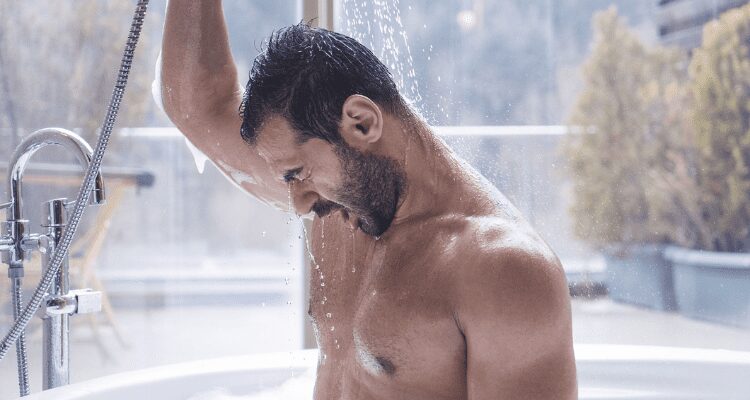Cold showers were once considered a form of punishment, military routine, or extreme habit reserved for elite athletes and monks. Today, they’re becoming a hot trend in wellness circles—and for good reason. Whether you’re looking to boost your energy, elevate your mood, improve immunity, or simply challenge your comfort zone, cold showers offer a range of scientifically supported benefits.
In this post, we dive deep into the cold shower phenomenon, unpacking its origins, benefits, myths, and how you can gradually make it part of your daily routine.
What Is a Cold Shower?
A cold shower is exactly what it sounds like: bathing in water typically below 70°F (21°C). While most people prefer warm or hot water for relaxation, cold showers trigger a physical and mental response that can lead to transformative health benefits. Think of it like controlled discomfort with surprising rewards.
The Psychology Behind Cold Showers
Taking cold showers isn’t just physical—it’s psychological. When we voluntarily enter an uncomfortable situation and learn to adapt, it sends a powerful signal to our brain: we’re in control. Over time, this practice builds mental resilience, discipline, and even emotional stability.
Cold exposure forces you to focus, breathe through discomfort, and break habitual responses like avoidance and procrastination. Many entrepreneurs, freelancers, and high-performers incorporate cold showers as part of their mindset training.
Science-Backed Benefits of Cold Showers
Here are the most prominent benefits of cold showers, backed by both anecdotal and scientific research:
1. Boosted Energy & Alertness
Cold water jolts the body awake. It triggers deep breathing, increases oxygen intake, and speeds up heart rate—all of which translate to a natural energy surge. Perfect for those sluggish mornings. “Cold showers increase norepinephrine levels—leading to heightened alertness and attention.”—Journal of Neurophysiology
2. Improved Circulation
Exposure to cold causes blood vessels to constrict and then dilate, encouraging better circulation. This can help reduce muscle soreness, improve cardiovascular health, and support recovery.
3. Strengthened Immunity
Some studies suggest regular cold exposure boosts white blood cell counts, helping fight off illness. Dutch extreme athlete Wim Hof popularized this theory with his “cold therapy” techniques. A 2016 study in PLOS One found participants who took cold showers took fewer sick days from work.
4. Increased Mental Resilience
Cold showers test your ability to stay calm under discomfort. Over time, this strengthens willpower, determination, and emotional regulation. Atheletes often use cold exposure to train discipline and sharpen mental grit.
5. Reduced Stress & Anxiety
Cold showers activate the sympathetic nervous system briefly, but then trigger parasympathetic recovery—resulting in calmer mood and lower anxiety over time. A study in Medical Hypotheses suggested cold exposure can stimulate the brain’s “blue spot”—responsible for releasing mood-boosting chemicals.
6. Better Sleep

Strangely enough, short cold showers (especially in the evening) can help regulate body temperature and prepare your body for deeper sleep.
7. Healthier Skin & Hair
Unlike hot water, cold water doesn’t strip away natural oils. It tightens pores, reduces acne inflammation, and adds shine to hair by smoothing follicles.
Cold Shower vs. Hot Shower
| Feature | Cold Shower | Hot Shower |
|---|---|---|
| Circulation | Improves with vasoconstriction | Relaxes blood vessels |
| Mental State | Stimulates alertness and focus | Promotes relaxation |
| Skin & Hair | Preserves oils, tightens pores | Strips oils, may dry skin |
| Immunity | Boosts white blood cells (potential) | No clear impact on immune function |
| Stress Response | Triggers & trains resilience | Eases temporary stress |
| After Effect | Long-lasting energy | Short-term drowsiness |
How to Start Taking Cold Showers (Without Quitting)
Cold showers are not meant to be torture. Here’s how to ease in:
Step-by-Step Guide:
- Start Warm: Begin with a normal shower and gradually lower the temperature.
- Go Incremental: Week 1—30 seconds cold, Week 2—60 seconds, gradually reach 2–3 minutes.
- Control Breathing: Inhale deeply, exhale slowly. Your breath controls your nervous system.
- Stick to Morning Routine: It aligns best with your body’s natural alertness cycle.
- Pair with Mental Affirmations: Visualize strength, say “I can do this” in the cold.
Common Myths About Cold Showers
Myth 1: Cold Showers Cause Illness: They might strengthen immunity when done gradually. Jumping into freezing water with no adaptation could be harmful, yes—but smart exposure can help build resilience.
Myth 2: They’re Only for Athletes: While elite performers use cold showers, they’re accessible and beneficial for anyone.
Myth 3: Cold Water Hurts Skin: Cold water is gentler than hot on sensitive skin and helps reduce puffiness and inflammation.
Cold Shower Statistics You Should Know:
- 42% of people who try cold showers report increased productivity.
- Cold showers increase norepinephrine up to 530%, improving focus.
- Athletes using cold exposure report 35% faster recovery in DOMS (delayed muscle soreness).
- Cold showers linked to 20–30% reduction in sick days per year in Netherlands-based study.
Global Cold Water Traditions
- Japan: Misogi purification rituals in freezing rivers.
- Russia & Finland: Ice swimming + sauna culture.
- India: Yogis often begin the day with cold water baths for energy.
- Nordic countries: Cold plunge pools used after steam baths.
Cold exposure has cultural roots in resilience, purification, and awakening. You’re not just hopping in the shower—you’re following the wisdom of centuries.
Who Should Avoid Cold Showers?
- People with cardiovascular conditions (consult your doctor!).
- Pregnant women or those with immune suppression.
- Individuals with cold-induced asthma or Raynaud’s disease.
When in doubt, always consult a health professional. Wellness ≠ risk.
Personal Testimony: The Freelancer’s Edge
As an author, cold showers changed my mornings. No more snooze button spirals. The shock of cold wakes me up, clears my mind, and pushes me into productivity. It’s my silent coach saying “Win the day.” Cold showers aren’t just routine—they’re ritual.
Benefits of Cold Showers for A Stronger You
The humble cold shower packs a punch for your body and mind. Whether you’re fighting fatigue, building emotional resilience, or simply looking for a low-cost wellness practice, cold showers are a proven way to upgrade your routine.
So tomorrow, turn the knob to cold. Breathe deep. Embrace discomfort. And remember: each drop is sharpening your edge. I hope this blog post serves you well as a guide to cold showers and don’t forget to check out my Instagram to explore my newly collection of beautifully hand-crafted motivational quotes to brighten your day HERE!
- Related Content: Habits Guide: How to Form Good Habits


